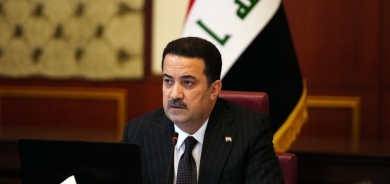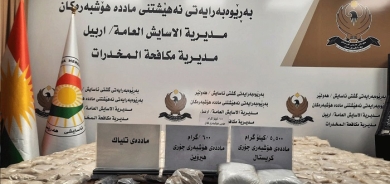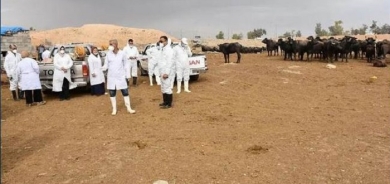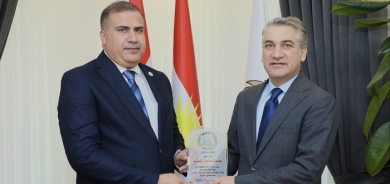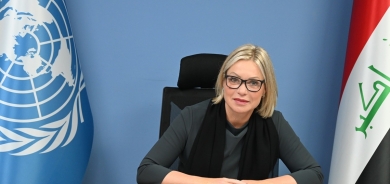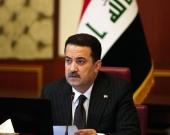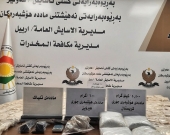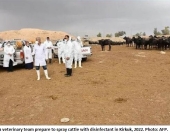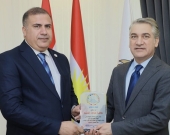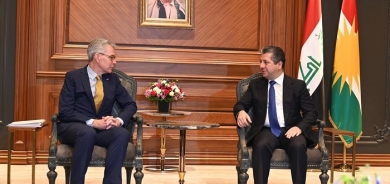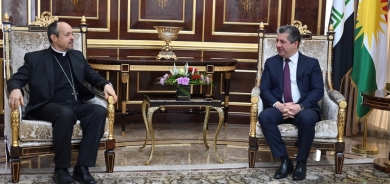Yemenis head to polls to elect new president as Saleh’s 33-year era comes to an end
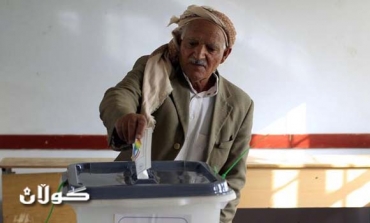
The vote, which Washington and Yemen’s richer neighbors led by Saudi Arabia support in order to avoid Yemen’s collapse into a failed state in which Islamist militants may thrive, has been rejected in swathes of the impoverished country it is meant to stitch back together.
The referendum-like poll, in which Saleh’s deputy Abdrabuh Mansur Hadi is standing as the sole consensus candidate, is being boycotted by two major opposition groups; the separatist Southern Movement and the northern Shiite rebels.
But the main proponents of the uprising that began in January 2011 have asked Yemenis to throw their support behind Hadi, whose posters have been plastered across buildings and throughout the streets of the capital Sana’a, according to AFP.
Hardline factions of the Southern Movement have gone as far as calling for preventing the election from taking place at all, and making Tuesday a day of “civil disobedience” to disrupt voting.
Attacks on polling stations and clashes between troops and anti-election protesters in the south have raised fears that polling day could be marred by violence.
Such fears have prompted authorities to deploy 103,000 soldiers to guard polling stations, said Mohammed Yahya, chairman of the Electoral Commission.
Hadi, himself a southerner, pledged on Sunday to southern separatists and northern rebels that he will address their concerns, saying that “dialogue and only dialogue” can resolve these long-standing conflicts.
Yemen’s new president will rule for an interim two-year period, after which presidential and parliamentary elections will be held, a condition of the Gulf-brokered transition deal signed by Saleh in November.
“The election is a political scenario mapped out in the GCC initiative but in its essence it is irrelevant to the true ideals of democracy,” Rana Jarhoum, 29, a development worker, told Reuters.
However Saleh’s shadow looms large over Tuesday’s vote.
The veteran strongman maintains a strong hold over the most powerful security forces and there is also speculation that he might return from the United States, where he is receiving medical treatment, as soon as Wednesday.
In a speech published on state news agency Saba Monday, Saleh, spared the fates of his ousted Arab counterparts, urged Yemenis to vote for his deputy to ensure a “peaceful” transition of power.
Autocrats in Tunisia and Egypt were forced to resign last year, bowing down to mass uprisings.
In Libya, rebels backed by NATO forces captured and killed dictator Muammar Qaddafi in October.
Polling stations in Yemen opened at 8:00 am (0500 GMT) and results are expected in the two following days, although under Yemeni law it can take up to 10 days before full results are announced.
More than 12 million Yemenis are eligible to vote -- 10 million registered in the last elections in 2006 in addition to 2.2 million new voters.
The turnout in the single-candidate election will give some idea of the support 66-year-old Hadi has from his countrymen to lead the transitional period.
In a televised speech on Sunday, Hadi promised “radical reforms” and stressed the need to reunify the army.
The military has been divided since last March when some units defected to support the uprising against Saleh’s rule.
Hadi also pledged to fight al-Qaeda and its growing influence in the lawless south and eastern provinces, where the militants have seized several towns in recent months.
Washington, which long backed Saleh as a foe of the al-Qaeda branch which plotted abortive attacks abroad from Yemen, now backs transition to ensure it has a partner in its war against al-Qaeda, which includes assassinations using drone strikes.
Its envoy in Sana’a, Ambassador Gerald Feierstein, on Monday claimed Shiite Muslim Iran was fomenting unrest in the northern provinces where Saleh’s forces tried and failed to crush Shiite rebels. This echoed the accusations of Sunni-led monarchies neighboring Yemen that Tehran seeks more regional influence via a Shi'ite fifth column, according to Reuters.
He also called for reunifying a military in which Saleh’s son Ahmed Ali and nephew Yehia lead key units that have enjoyed U.S. support. They are locked in a stand-off with tribal leader Sadeq al-Ahmar and dissident General Ali Mohsen, whose battles with Saleh’s loyalists have left parts of Sana’a in ruin.
Yemen’s interim government faces fiscal and humanitarian crisis, and has sought billions of dollars in international aid to avoid collapse in a country where unrest has all but paralyzed modest oil exports that fund imports of staple foodstuffs.
The IMF estimated Yemen’s forex reserves dipped to $2.7 billion last year, and the United Nations Children’s Fund says 57 percent of Yemen’s 12 million children are chronically malnourished - the highest level outside Afghanistan - and that half a million face death or disfigurement.
(Reuters)

